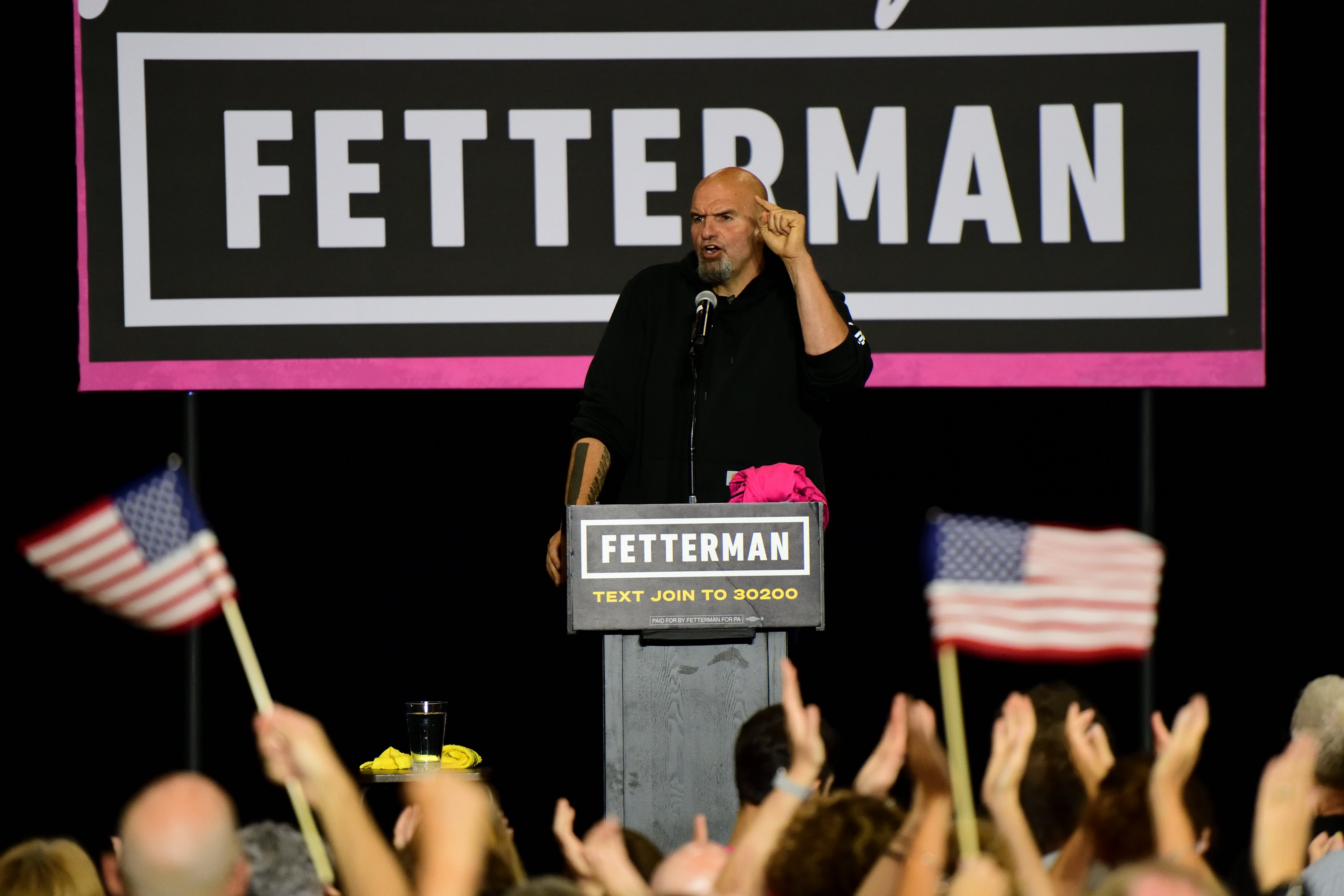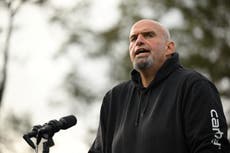The Independent's journalism is supported by our readers. When you purchase through links on our site, we may earn commission.
Tucker Carlson missed the entire point about my tweet – and the very real issue it’s about
Providing accessibility doesn’t give politicians with disabilities a pass; it allows us as the press to hold them accountable


Your support helps us to tell the story
From reproductive rights to climate change to Big Tech, The Independent is on the ground when the story is developing. Whether it's investigating the financials of Elon Musk's pro-Trump PAC or producing our latest documentary, 'The A Word', which shines a light on the American women fighting for reproductive rights, we know how important it is to parse out the facts from the messaging.
At such a critical moment in US history, we need reporters on the ground. Your donation allows us to keep sending journalists to speak to both sides of the story.
The Independent is trusted by Americans across the entire political spectrum. And unlike many other quality news outlets, we choose not to lock Americans out of our reporting and analysis with paywalls. We believe quality journalism should be available to everyone, paid for by those who can afford it.
Your support makes all the difference.On Wednesday, I delivered a speech at the College Autism Network at Vanderbilt University in Nashville about making colleges more accessible for autistic students. Incidentally, during my speech, the screens on each side of the stage had closed captioning to make my words more accessible to those with processing disorders or who might be deaf or hard of hearing.
Hence, I was surprised when I returned to my hotel and saw that right-wing provocateur Tucker Carlson posted a tweet of mine on his Fox News programme.
On Tuesday, after NBC News posted its interview with Pennsylvania Senate candidate John Fetterman and his use of closed captioning, CBS News’s Ed O’Keefe wrote a tweet wondering, “Will Pennsylvanians be comfortable with someone representing them who had to conduct an interview this way.” (Full disclosure, I am a columnist for MSNBC).
In response, I asked how this was any different from Tammy Duckworth or Madison Cawthorn having to use a wheelchair, or if it was any different from the multiple senators who use hearing aids.
But Carlson – who works for a network designed to elect Republicans, hence why it has mentioned Fetterman more than any other Senate candidate, as liberal watchdog Media Matters has monitored – the larger national media’s decision to portray Fetterman’s use of closed captioning is in many ways a sign of just how unwelcome people with disabilities are in public life. And it will have a downstream effect of discouraging them from entering politics.
Roughly a quarter of Americans live with disabilities, but despite that, very few people with disabilities run for office. At the same time, the median age in the United States Senate is 64.3 years old and numerous senators need different types of assistance from hearing aids. Some senators are much older, including Democratic Senator Dianne Feinstein of California, who at 89 has been the subject of numerous reports about her fading memory.
Even under the Americans with Disabilities Act, asking for accomodations usually falls on the person with a disability, rather than on the various scenarios and environments to be accessible as possible.
As a result, that makes providing accomodations to people with disabilities seem like an act of charity rather than the bare minimum.
For example, Dasha Burns, the NBC reporter who interviewed Fetterman, could say, “We were happy to accommodate closed captioning” as if they were doing him a favor. (As an aside, this is why I loathe the term “special education”: it implies that educators give people with disabilities “special treatment” rather than giving them a level playing field).
I can somewhat understand Burns’s concerns about offering accessibility tools. To people who are unfamiliar with disability, it could be seen as giving him an unfair advantage. In journalism, we are often taught that in-person interviews are best, over the phone is fine but emailed questions are almost taboo since we see them as allowing for politicians to create prepared statements.
But in my time interviewing people with disabilities, I have found that giving them time to process questions – especially if they have sensory processing disorders, autism, intellectual disabilities or conditions like apahasia – allows them to deliver more authentic answers. This does not mean giving them a pass and does not preclude asking a follow-up question. To the contrary, when I wrote my book, it allowed me to tell their stories more fully.
Similarly, Burns said that “our reporting did not and should not comment on fitness for office. This is for voters to decide. What we do push for as reporters is transparency.” Here, Burns and I agree: It is not our job to specifically comment on whether someone deserves to win office. Where we diverge is the idea that remarking on someone using accessibility tools is worthwhile.
Specifically, she was responding to criticism after suggesting that Fetterman could not understand what she was saying in their pre-interview chat, which came without closed captioning. But that is just as unfair as saying someone with poor vision could not see them without their glasses.
Closed captioning is a tool that allows Fetterman to understand what she was saying to him and pointing out his inability to understand otherwise shows a lack of understanding of accessibility. Furthermore, providing accessibility and pushing for transparency are not mutually exclusive – rather, providing accessibility allows reporters to hold politicians to account.
If we as reporters do not provide accessibility to elected officials, that prevents us as reporters from asking them questions and allows them to skate by. It is our job to hold Fetterman – and his Republican opponent Mehmet Oz, for that matter – accountable, whatever way that is possible.
But Burns aside, there is also a more sinister side to this: During his tirade about Fetterman, Carlson complained about how “we’re supposed to accommodate Greta Thunburg”, the Swedish climate change activist who is autistic and equate it with saying “her words are profound”, as well as with poet Amanda Gorman, who has a speech impediment.
This is a strawman and drawing a false equivalency. No person with a disability says that providing accommodations means people cannot criticize their words or actions. Arguably, as a journalist with a disability myself, I am harder on other people with disabilities because once I give them the necessary accommodations, I let them rise and fall on their merits and am less squeamish about criticizing them since they can no longer hide behind a lack of accommodations.
All of this is incredibly concerning because people with disabilities are a group of voters (and news consumers for that matter) that deserve fair coverage and representation in both politics and media. But making Fetterman’s use of closed captioning won’t just affect him: It will have a cascading effect of saying people with disabilities aren’t welcome in the political square.



Join our commenting forum
Join thought-provoking conversations, follow other Independent readers and see their replies
Comments